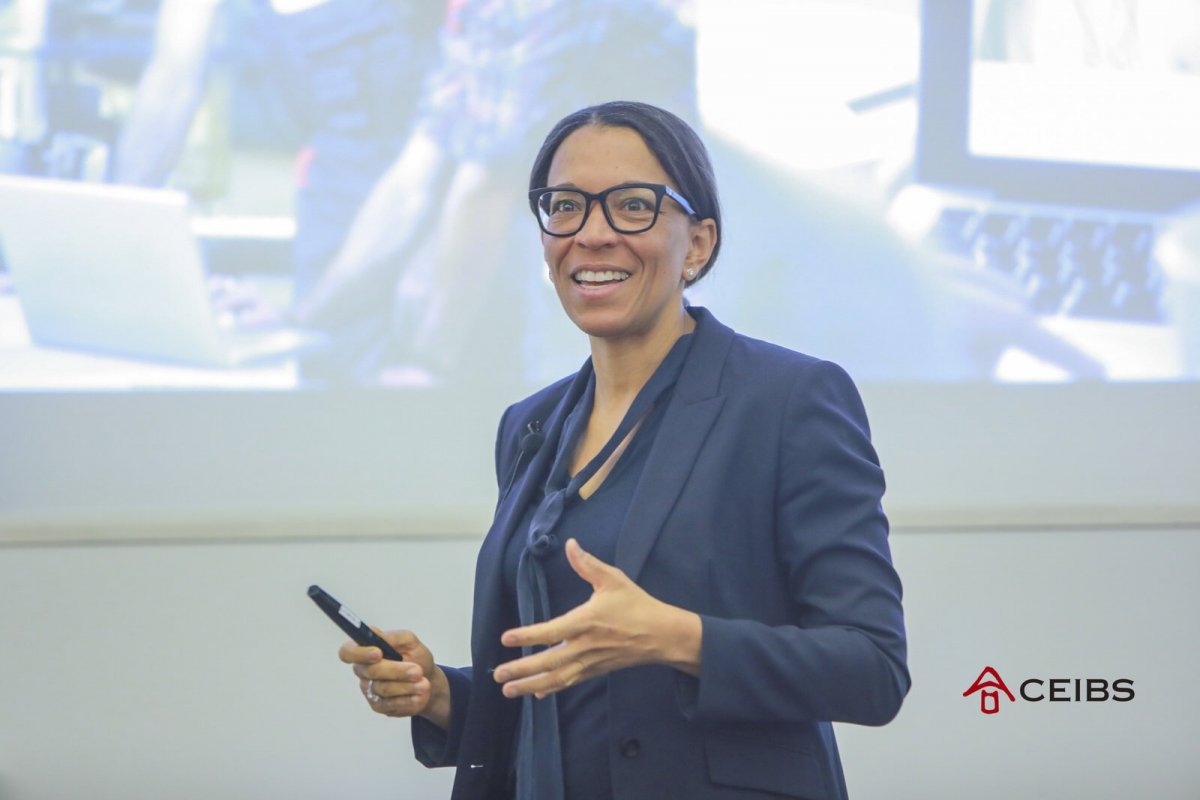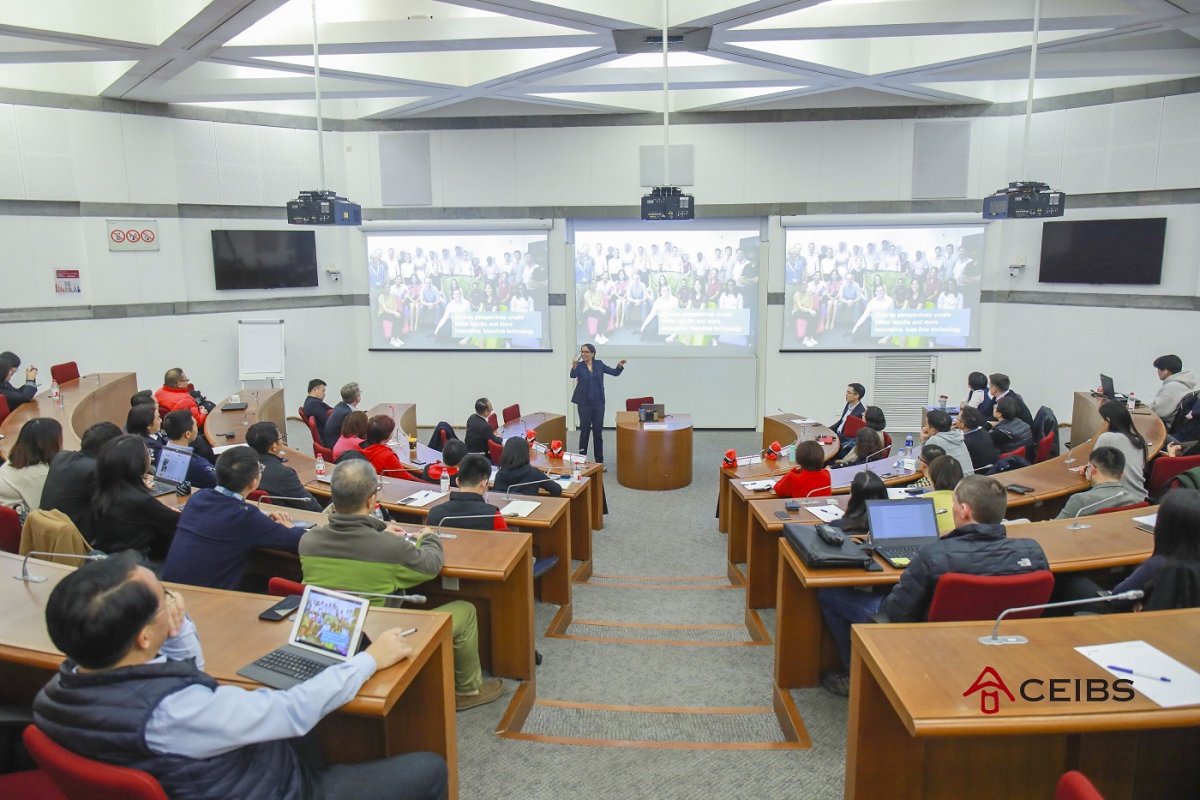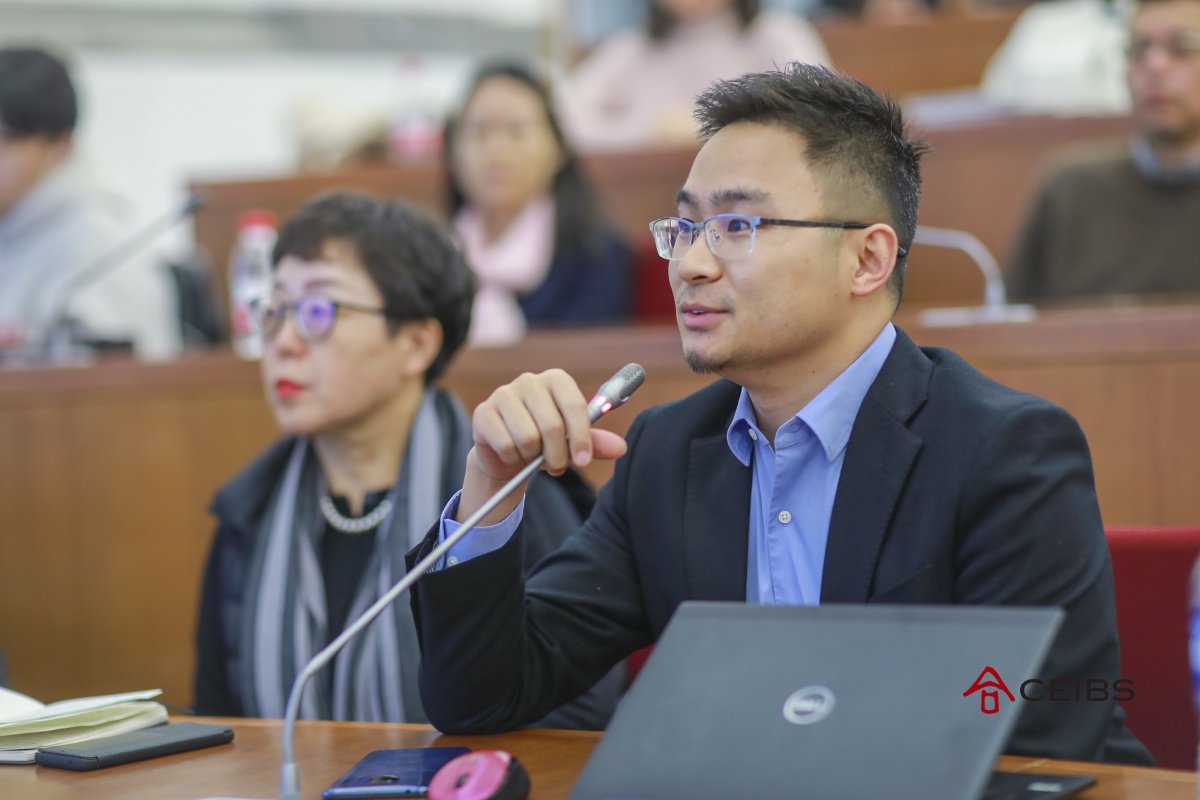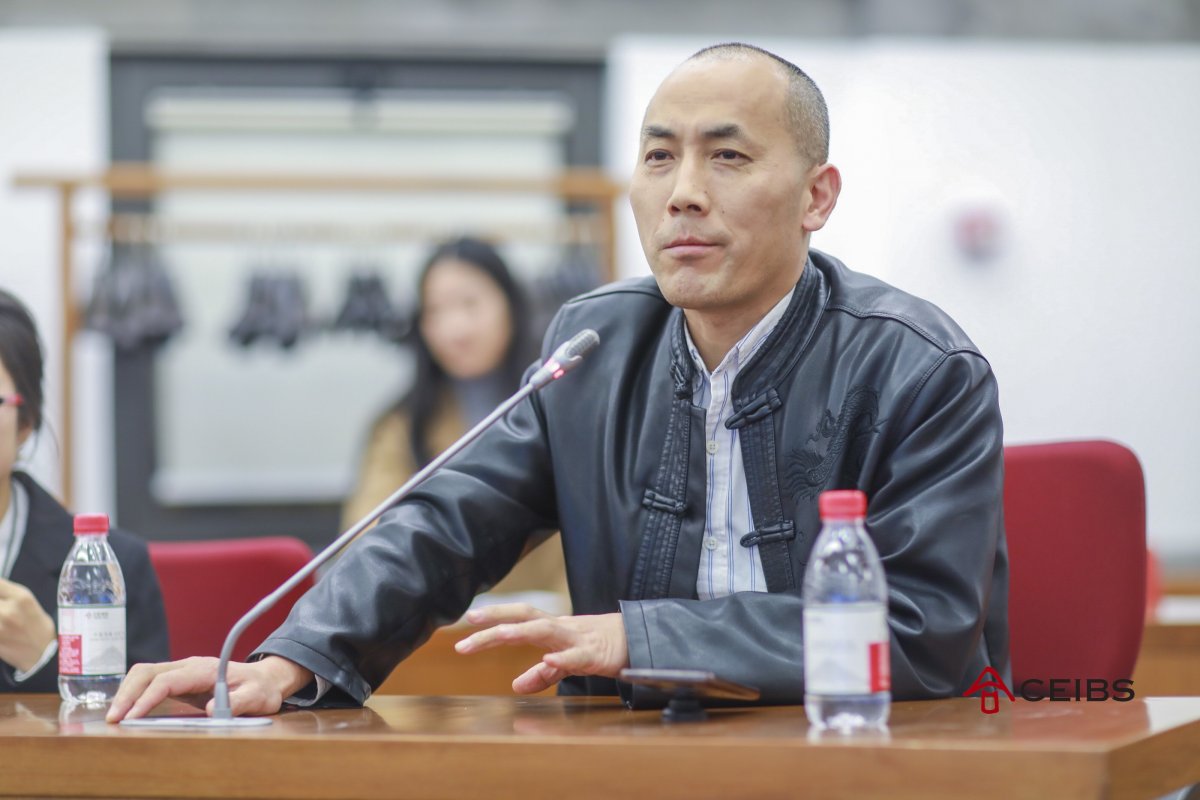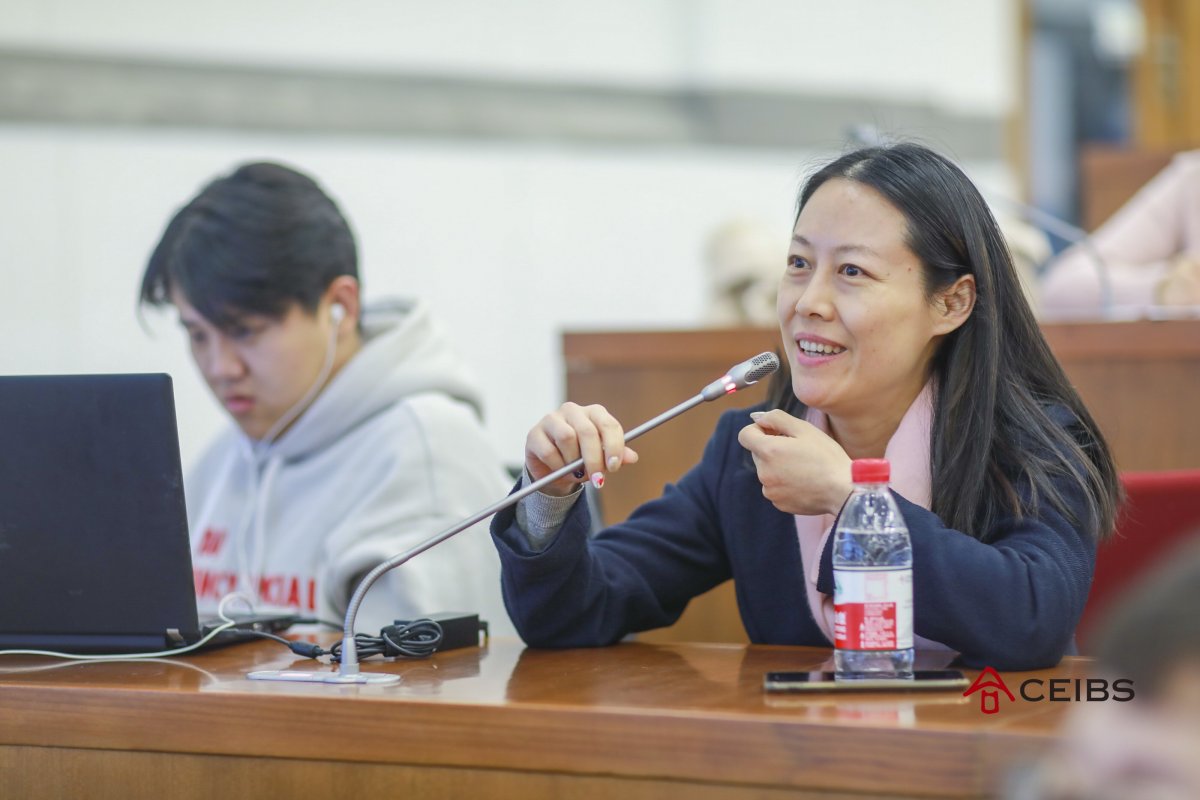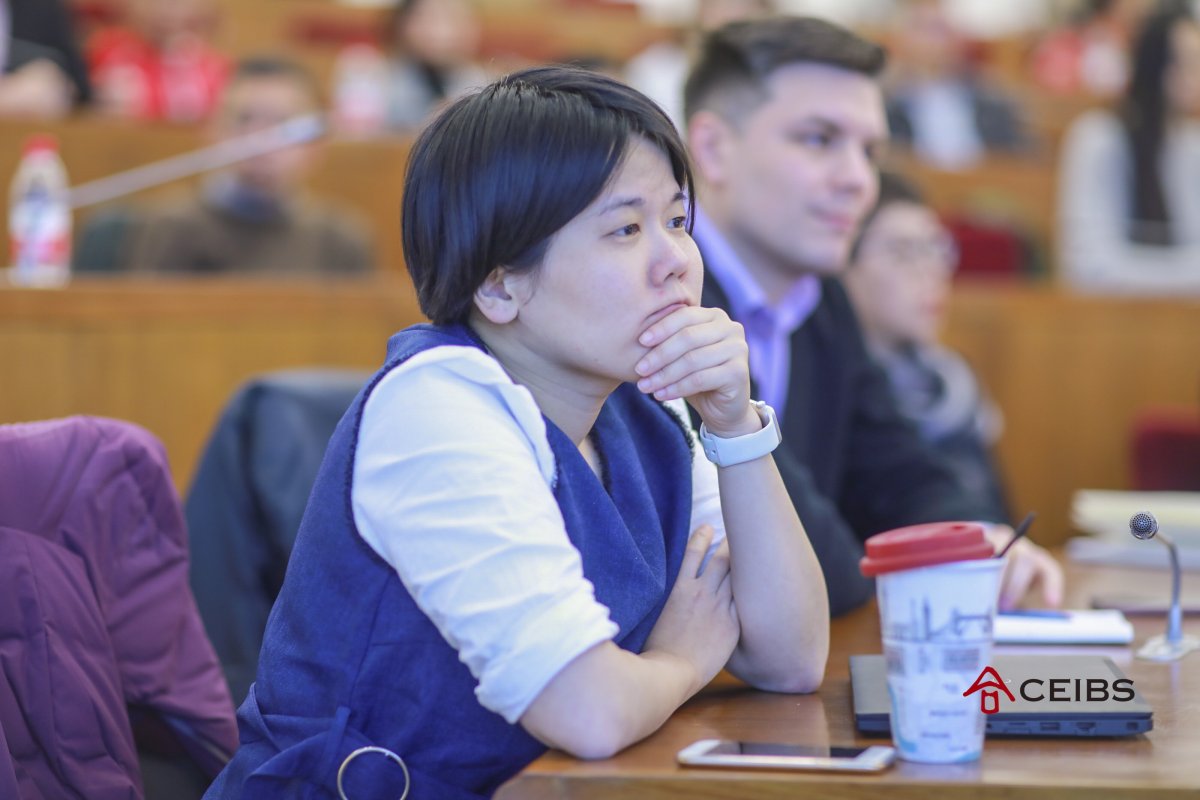CEIBS Executive Forum Explores Future of Work
March 13, 2019. Shanghai – CEIBS alumni and students and members of the local business community gathered at our Shanghai Campus this evening for the latest instalment of the 2019 CEIBS Executive Forum series. The event was headlined by Siemens AG Chief Human Resources Officer (CHRO) and Managing Board Member Janina Kugel, who delivered a lecture entitled, The Future of work is now – are you ready to shape it? The presentation looked at the importance of continuous reinvention in shaping leadership and corporate culture in ways that all employees can unleash their full potential. In addition, Kugel explored some of the ways that the Fourth Industrial Revolution is changing the way we think, act, and communicate, and what these shifts mean for businesses and, in particular, for large organisations.
“For many years, managers thought that if you were a large company, if you were a conglomerate, and if you had really diversified businesses, nothing would happen to you,” Kugel said. “Because eventually even if some businesses don’t go well, you’re going to survive.”
That reality, however, is changing, as technologies such as 5G, IoT, VR, and AI are now enabling smaller players to partner up and compete with bigger companies in new and creative ways. While no one has quite figured out what all of these changes will mean for business, Kugel asserted that, “One thing is definitely true – the changes that are happening are must faster and the technology is much more disruptive.”
Moreover, digitisation is disrupting the way people work and live in ways that previous generations were unable to imagine. Among other things, the primacy of where and when people work is losing its relevance.
“Many traditional companies still require their employees to be present in the office,” Kugel said. “But, the culture among many baby boomers and Gen-Xers with very hierarchical thinking that, ‘I need to see my people. I need to see that they’re really working,’ is not necessarily going to be engaging for the generation to come that has grown up totally different.”
Furthermore, for certain people with certain talents, certain geographical locations no longer appeal to them because they can find employment almost anywhere they want. As a result, many companies have been forced to re-think how to bring individuals and teams together – and how to make the most of these new arrangements. Although it doesn’t work in all situations, Kugel admitted, “Sometimes we can work in global teams. [On the upside,] someone is always awake 24-hours around the globe and while you’re sleeping a solution is getting developed further.”
As recently reported by the World Economic Forum, the skills required to perform most jobs will have shifted significantly by 2022. Among the skills on the rise are emotional intelligence, active learning and learning strategies, critical thinking and analysis, and ideation. What this means, Kugel explained, is that there are many new capabilities that employees need to develop.
“Unless you retire tomorrow, whatever you know today is not going to be sufficient to finish your career and we constantly have to learn new things,” she said. “We have been speaking about life-long learning for many years, but it has a different meaning today. [For one,] it doesn’t mean you have to go to a classroom and learn for a week and then it’s done.”
Instead, Kugel stated, investing in the education of people is better viewed as an ongoing endeavour – one that requires individuals to take the time to learn new things and study them. It also requires companies to focus on developing the potential of the employees they have now.
“Investing in your people is investing in your workforce for tomorrow,” she said. “So you’d better equip them with the right skills and right competencies, rather than just trying to find new people.”
Ultimately, however, managers and leaders need to relinquish the image of the boss as all-around expert and place more trust in their employees to ensure they are able to unleash their full potential.
“We have to give guidance, but we also have to give up control to our teams when they work on tasks,” Kugel stated. “Because the results will not always lie where you think the best solution will be, but it might come out somewhere else and still be a good result.”
Keep up with the latest Executive Forums and other CEIBS events by visiting our events page, here.







